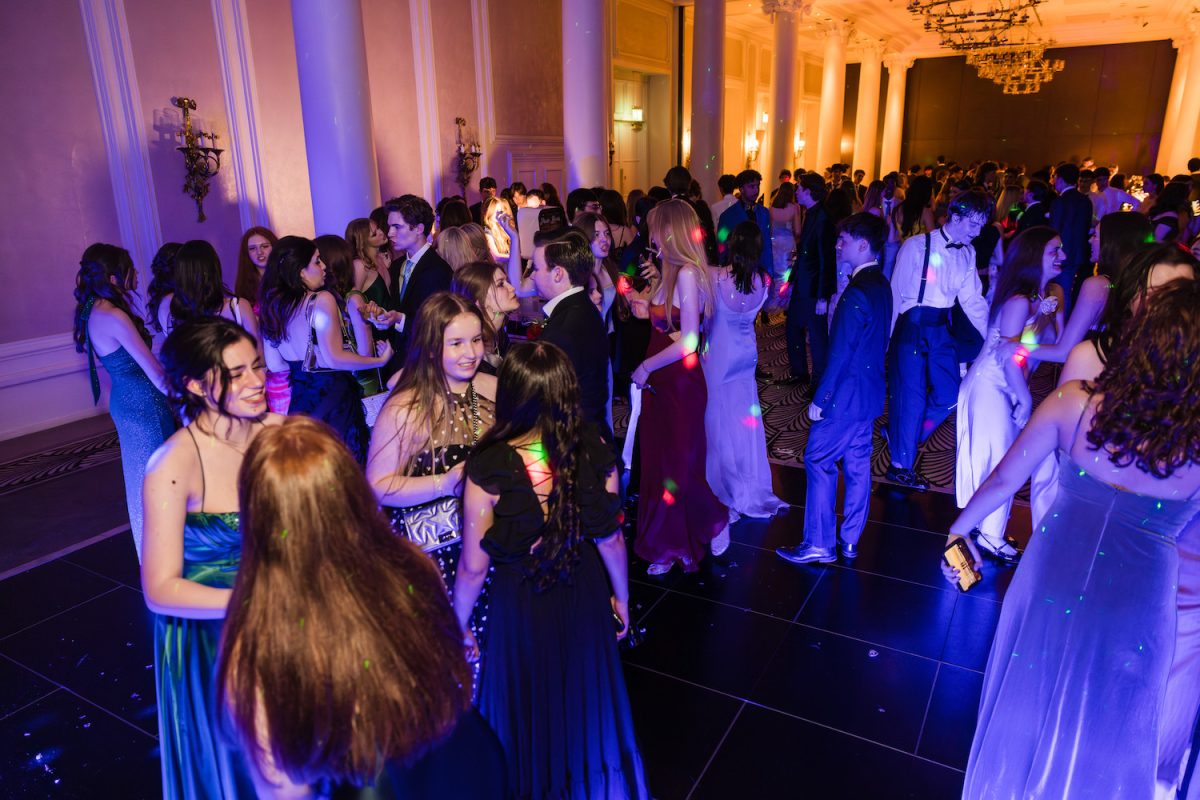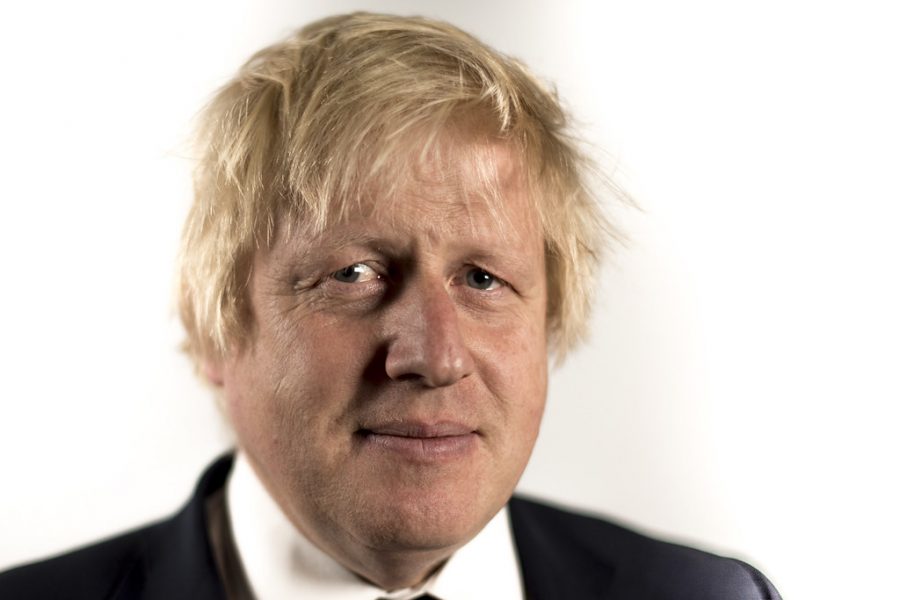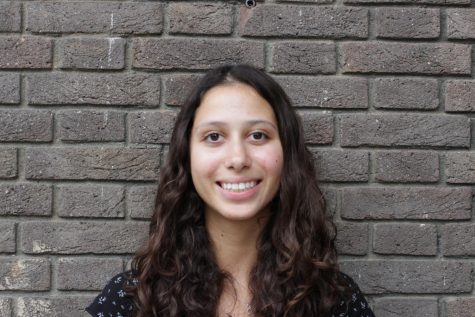Boris Johnson became the new Prime Minister and leader of the Conservative Party in July 2019. The U.K. was due to leave the EU on Oct. 31, 2019. As the deadline approached, newly elected Johnson negotiated a new deal with the EU and put it to a vote in parliament.
Disagreements on timing to review the deal and divisiveness amongst members of Parliament led Johnson to call for an early election with the objective being to resolve the hung parliament, which is a Parliament in which no political party wins a majority of seats. The hung parliament has been unable to pass laws or get Brexit done.
With two-thirds of Parliament voting for an early general election, the U.K. went to the polls today, December 12, 2019.
Science Teacher David Partridge said that he agrees with Parliament’s vote on holding this early election.
“Johnson had to call it, he’s standing on a platform of Brexit – Brexit or bust -and he’s not able to pass that,” he said. “The only way he can get it passed is to hold an election in the hope that he will gain a majority, and if he has his majority he has free reign to accomplish any of his goals”.
On the contrary, Grade 9 Dean Duncan Pringle said that he disagrees with Partridge believing that the early election was not needed.
“I feel like Parliament to some extent was expressing the will of the people. So no I do not think it was necessary. I think it was politically expedient for the Conservative Party to hold the election when it did,” Pringle said.
A major reason for the election has been the lingering 2016 Brexit Referendum. The terms of withdrawing from the European Union have been under negotiation since the U.K. voted to leave. Former Prime Minister Theresa May (of the Conservative Party), negotiated a deal but, it did not have enough votes to pass in parliament. Johnson has taken on this burden since coming into office.
Partridge said that Brexit was brought about by a Conservative political agenda.
“I personally believe was made up by members of the Conservative Party on a particular agenda,” he said. “If you look back even a year before the referendum was held, who was talking about it? Who thought it was a problem?”
A general election is an opportunity for citizens in every part of the U.K. to choose their MP’s. This person will represent a local area (constituency) in the House of Commons for up to five years.
The three main parties are Conservatives, Labour, and Liberal Democrats. Some of the issues discussed in the campaign have been Brexit, climate change and the National Health Service (NHS).
Although these issues are at the forefront, English Teacher Miles Dunmore said that he thinks this early election is solely about Brexit.
“I think this election is all about Brexit, and how we define the future of the country in relation to Europe or the U.S. I also think that one of the strange things about this election is that of the two leading parties one is saying nothing about Brexit, the Labour Party is saying almost nothing, and the Conservatives are truly oversimplifying the issues,” he said.
Esin Yurdanur (‘22) says that there are two issues she’s heard the most about throughout this election process.
“I think the two biggest issues are the economy and U.K.’s future relationship with Europe,” she said. “This election is about what direction the country will take.”
Partridge said that he strongly believes that climate change is one of the most important issues that voters should make their prime concern. “I think the most important thing that voters should make their top priority in voting and considering parties is the climate emergency,” he said.
The Conservative Party has promised to set binding targets on air pollution and charges for plastic use. They pledged to meet net-zero emissions by 2050 and also say they will plant 30 million trees a year by 2025.
The Labour Party promises that it will meet net-zero carbon emissions by 2030 and has pledged to create 320,000 apprenticeships within renewable industries during its first term in office.
The Lib Dems have taken a different approach in tackling climate change and vow to spend 20 billion pounds a year for five years. They have also promised to produce 80% of the UK’s electricity from renewable energy by 2030 and to ban fracking.
Another key issue during this election is the National Health Service (NHS). The Conservative Party has pledged £20.5 billion in additional funding for the NHS in England by 2024. They also promise to train 6,000 more general practitioners (GPs) in England by 2025 and 6,000 more nurses, physiotherapists and pharmacists in surgeries.
The Labour Party has announced a plan to increase the NHS budget by £26 billion by 2024. The party also promises to improve mental health services, cut waiting times, and also train a new generation of GP’s raising the amount from 3,500 to 5,000.
The Lib Dems say they will put up income tax by 1 pence, aiming to increase the NHS budget by £35 billion. The party has additionally promised to treat physical and mental health with equal value and importance.
Dunmore said that he believes that Johnson is an opportunist when it comes to his political record.
“Boris Johnson plays the political game which will put him in power. He may have good intentions, but his track record of changing his views and refusing to treat topics seriously makes him not a strong candidate for leadership”.
Additionally, Yurdanur said that Johnson’s focus is more individual based rather than on society.
“Johnson is very focused on individualistic gains thinking that this will benefit the economy in the long run,” she said.
Partridge said that he believes Corbyn is a respectable leader, however he doesn’t always give a direct answer.
“Jeremy Corbyn is a man of great principle he can often come off as being a little bit vague because he understands that many of the most important issues are nuanced, they’re not black and white,” he said.
Echoing Partridge, Dunmore said that Corbyn’s image and relationship with the population is questionable.
“I respect Jeremy Corbyn as a campaigning politician with a long record of looking out for working class people and the NHS, however I wonder if he has the character to lead a country,” he said.
Additionally, Yurdanur said that while she believes Corbyn is trying to appeal to the average working individual, his goals for the country as a whole are are unrealistic.
“I think that Corbyn is society over the individual, however, he will struggle to get anything done,” she said.
Partridge said that he believes that the election polls are leaning towards the Conservatives Party over the Labour party.
“I fear that the Conservatives are going to win mainly because Labour Party have put themselves into the extreme left wing position. I understand that’s what Corbyn wants the country to be and I am sure many others would, however I don’t think the majority of Britain would, even if they were originally against Boris Johnson and the Conservatives.”
Partridge explained that although some people may have voted Labour in 2019, the policies have changed and they are now less inclined to do so.
“I personally have many friends that will not vote Labour because they do not like the extreme left wing policies of what the Labour Party wants,” he said.” They may have voted for the Labour Party in 2009 but not in 2019 so I fear that the Conservatives will win, and the best I can hope for is a hung Parliament again.”
Dunmore has similar predictions to Partridge.
“My preferred option is a hung parliament with no party having overall control. People have criticized parliament over the past year but I think it has done exactly what it should’ve done, the country is split, Parliament has reflected that and has prevented us from implementing damaging decisions,” he said.
Pringle also agrees with Partridge and Dunmore’s predictions.
“I think that all of the opinion polls very strongly suggest that the Conservative Party will have a working majority and the only thing that can stop that from happening is if people engage in tactical voting,” he said.
Pringle said that he believes that if tactical voting is done, there is a chance that the Conservative party will not necessarily win the majority of votes.
“If the Lib Dem voters can swallow their pride and vote for Labour in areas that the Labour party has the biggest chance of winning, even though they may not trust Corbyn, and similarly Labour supporting voters in seats where the Lib Dems have a chance of winning can be at peace with the fact that Swinson was part of the austerity government during the last previous Conservative-Lib Dem coalition, then maybe the Conservatives won’t win. That is the only way in my opinion,” he said.







